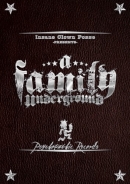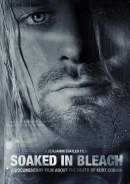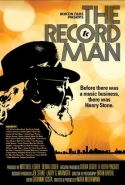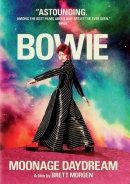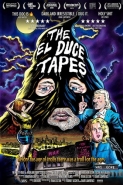 Sign up
Sign up to add this to your collection
|
 Sign up
Sign up to add this to your favorites
|
|
 76%
76%
Overall Rating
|
|
Ranked #8,714
...out of 20,698 movies
|
 Sign up to check in!
Sign up to check in!
|
Documentary about rock pioneer Roky Erickson, detailing his rise as a psychedelic hero, his lengthy institutionalization, his descent into poverty and filth, and his brother's struggle with their religious mother to improve Roky's care.
--IMDb
|
|

Review by Chad
Added: July 17, 2007
Roky Erickson may not be a household name, but he should be; after all, his band 13th Floor Elevators was one of the founding fathers of psychedelic rock. Psychedelic rock is, by definition, music that attempts to recreate the feeling one gets from being high on drugs, so it should come as no surprise that Roky was an advocate of drug usage with LSD and marijuana being at the top of the list (though he did dabble in heroin and other drugs). Now, in this day and age, that's almost to be expected from a lot of the big names in rock; hearing your favorite musician admit to smoking pot is about as shocking as turning on the news and hearing the president once again fumble over his words. Back in the late sixties, however, things were a little more strict, and unfortunately for Roky, the courts decided to make an example out of him. What would follow this drug bust (where he was found with just a single joint) would ultimately be thirty years of depression, bouts with schizophrenia, insanity, poverty, giving up on music, and total reliance on his mother.
After he was arrested, Roky was sent to the Austin State Hospital in lieu of serving prison time. He repeatedly tried to escape this place, and these escape attempts led to him being transferred to the Rusk State Hospital for the Criminally Insane, where he would be housed alongside murderers, child rapists, and various other unsavory folks. It was there that he also involuntarily received electroshock therapy and Thorazine treatments, and when he was finally released in 1972, he was a changed man to say the very least.
Was it the drug usage that transformed him from a rock pioneer into an incoherent burnout, or was it the preexisting schizophrenia? Was it the treatments that he received in the hospitals, or was it simply the fact that he was locked up in these hospitals? These questions really can't be answered, and the documentary does not attempt to do so. What it does do is present the man's life story from the beginning of his musical career up until the present (with the "present" being 2001, when shooting on the film completed), leaving it up to the viewer to come to his or her own conclusions about this tragic turn of events.
Roky has a very dysfunctional family with conflicting views on how his problems should be treated, and we watching at home get to see both sides of this story. His mother Evelyn claims that he shouldn't be medicated and basically allows him to sit on his ass zoned out in front of the television all day, while his brother Sumner claims that medication and spiritual healing are the keys to bringing a sense of normalcy to his life. While this brief description of the circumstances may paint a bad picture of the mother, that's not necessarily the case and that's certainly not how it's portrayed here: again, director Keven McAlester chose to simply present the material, let all involved parties have their say in regards to the situation, and served it up to us watching at home. Saying that "she should have done this" or "why didn't he do that" is not the point of this documentary, and that is definitely a good thing when it comes to this type of material.
I'm not going to claim to be a lifelong fan of the man and his work, but I was familiar with him prior to the release of this documentary. I first heard his work in Return of the Living Dead, where his song "Burn the Flames" was used in a particularly memorable scene of the film. From there, I would go on to purchase a fair amount of his work, and - again - I'm not going to claim that he's my favorite artist or anything silly like that, but I did enjoy what I heard. However, I never really knew a whole lot about his personal life; I knew about his musical accomplishments, I knew that I liked what I heard on CD, and I had a vague understanding of the situation, but I didn't know a whole lot of the details. Watching this documentary has changed all of that, as I felt that it told the complete story in a totally neutral way. There are no biases here and no fingers are pointed at anyone: the story is told, the facts are presented, and that is that. This, my dear readers, is how a documentary should be presented.
There is a happy ending to this story which is presented in a postscript bonus feature on the DVD release, but I'll leave it up to the curious readers to find out how that plays out as it's not particularly relevant to the actual documentary at hand. This documentary is absolutely amazing, and I highly advise most everyone to check it out; whether you're a fan of Roky Erickson's music, psychedelic music in general, music as a whole, or simply documentaries that will take your breath away, You're Gonna Miss Me is one of the best releases of the year. 10/10.
|
|




